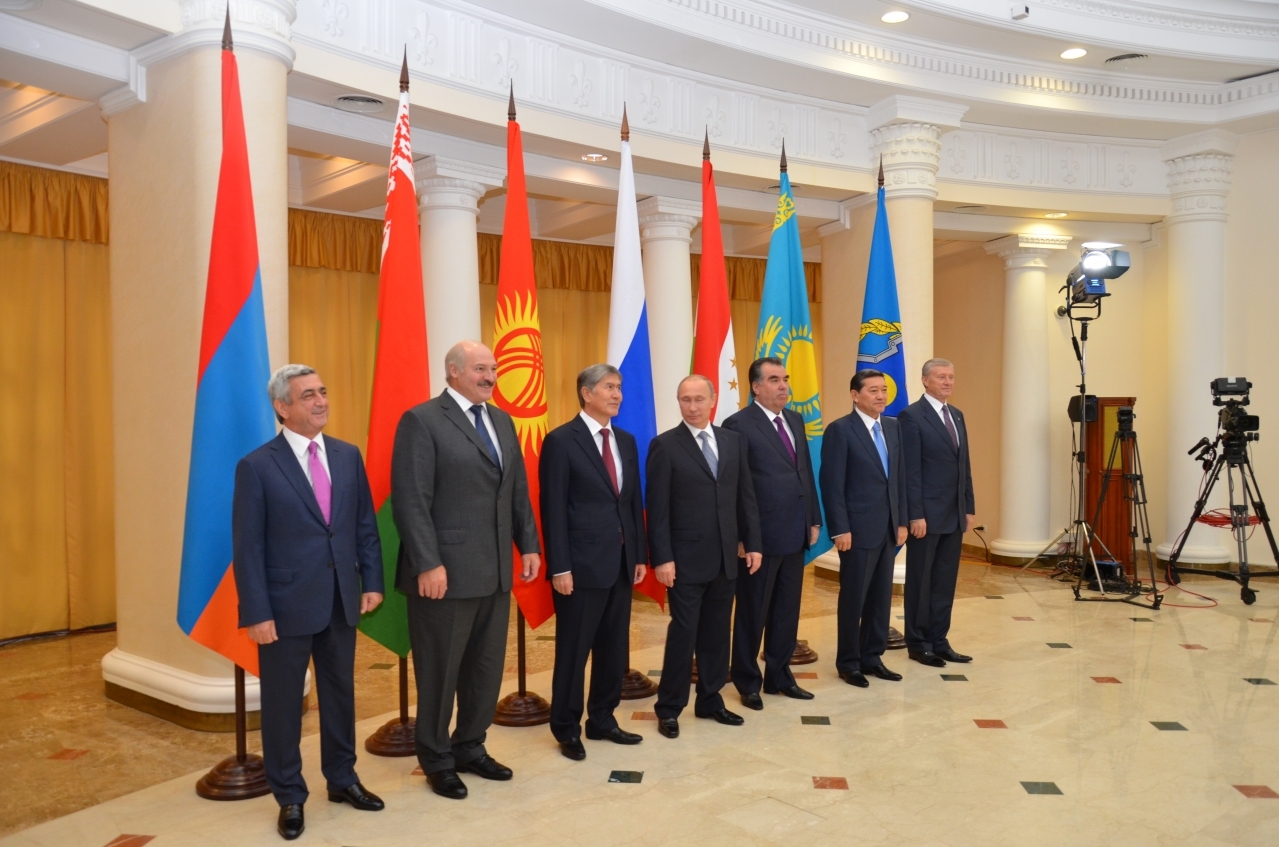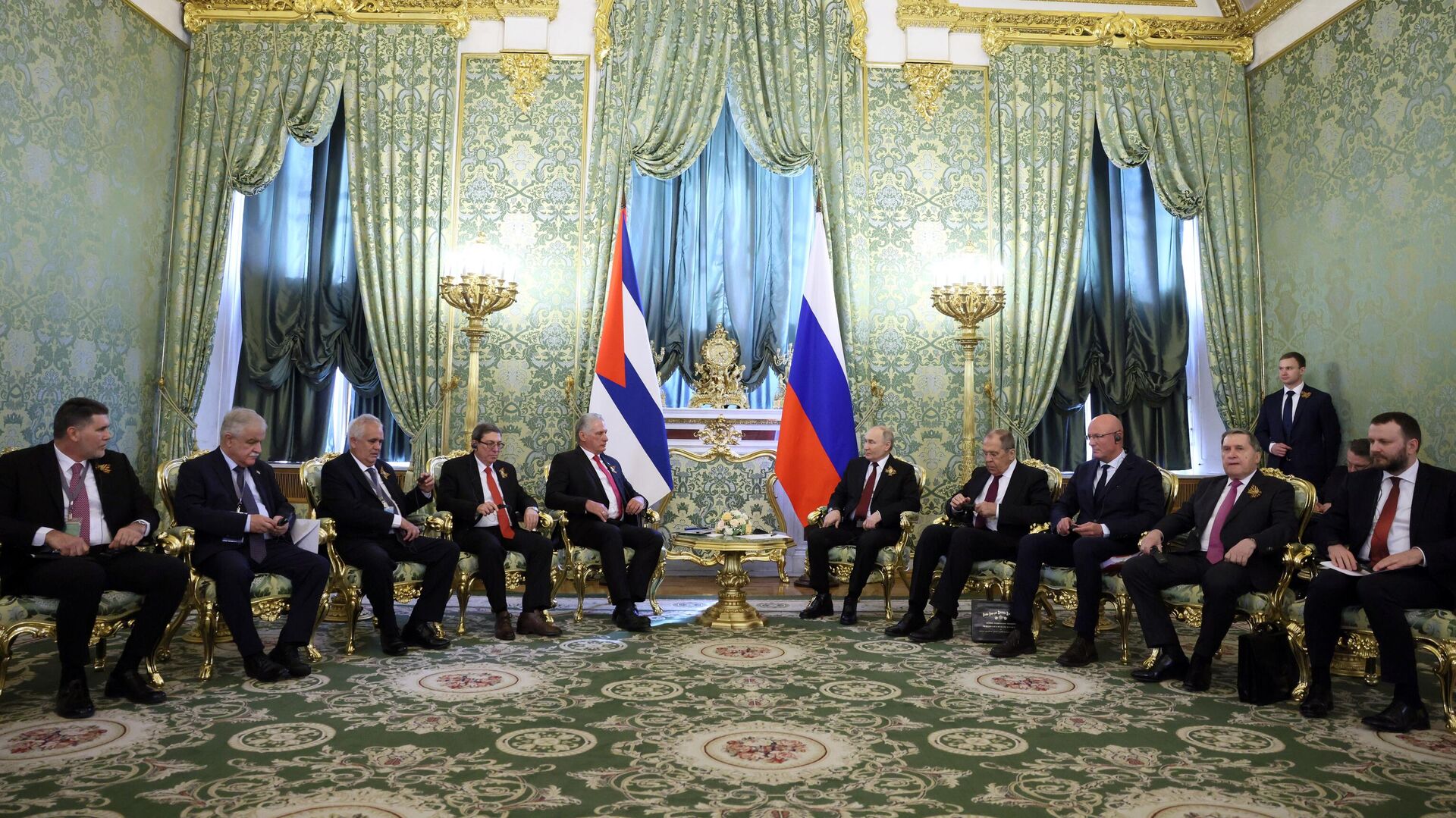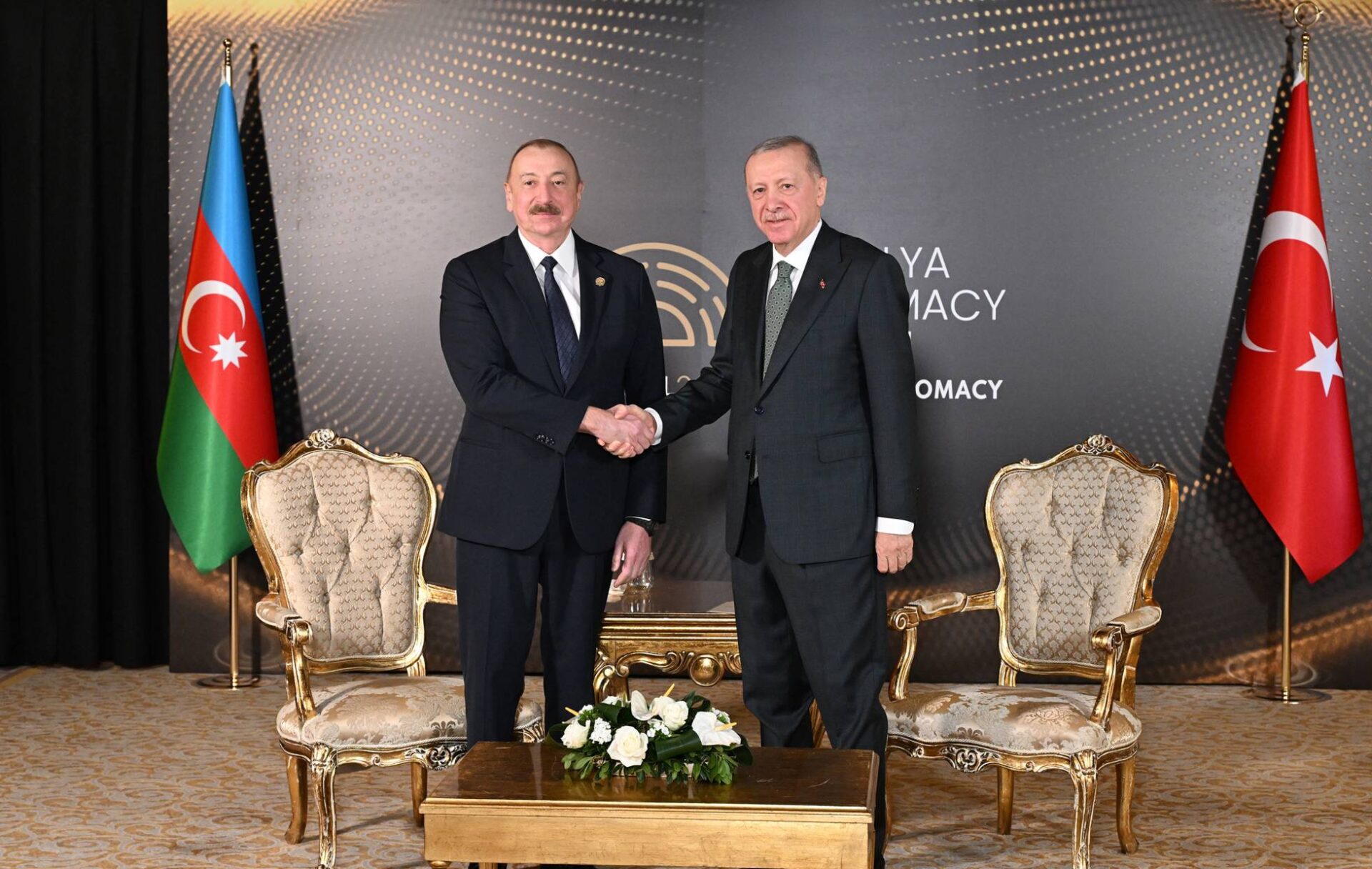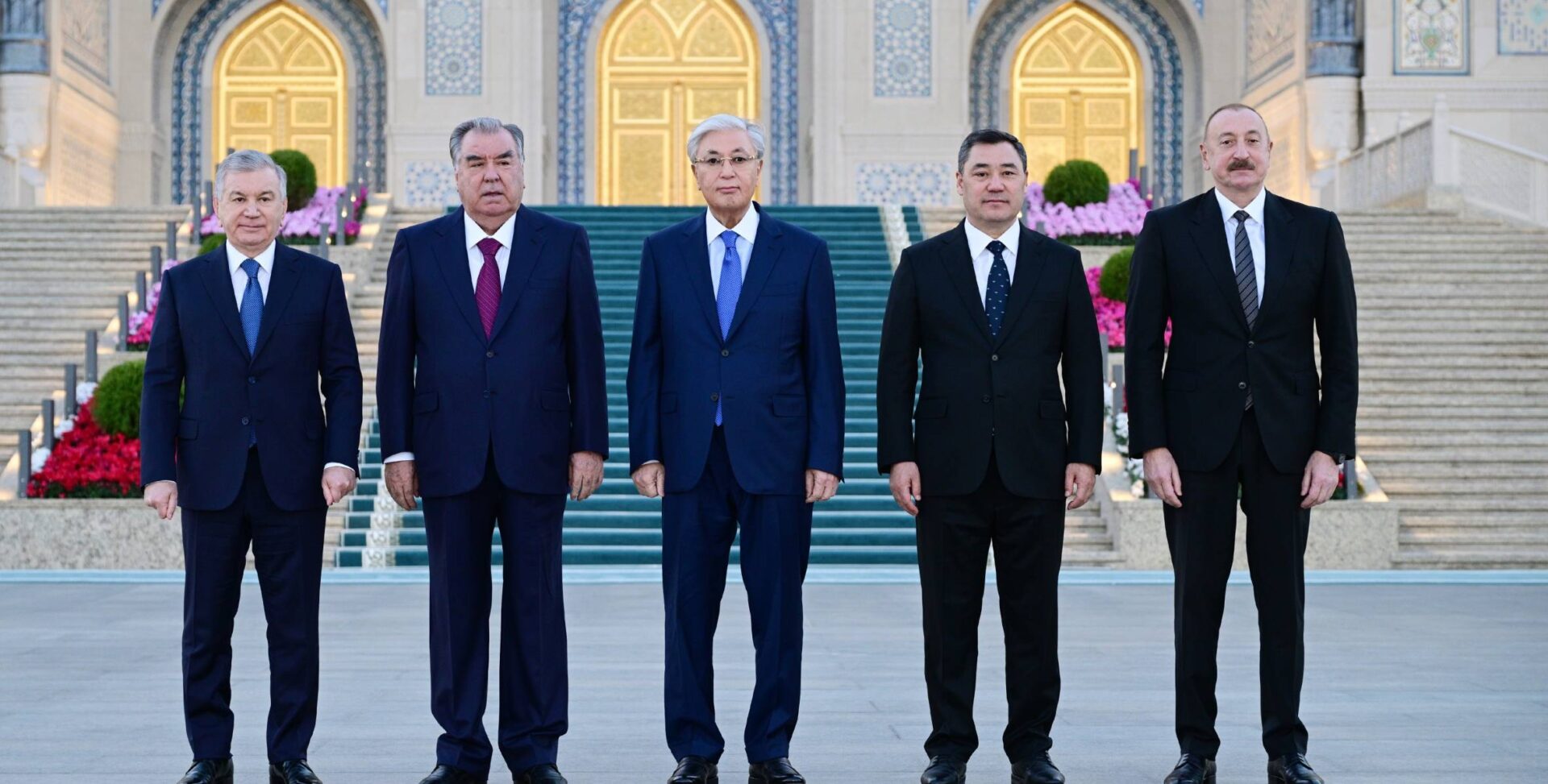
Russia Downplays Negative Economic Impact of Ukraine War for Its Central Asian Allies
Russia Downplays Negative Economic Impact of Ukraine War for Its Central Asian Allies
Russia’s large-scale re-invasion of Ukraine, which prompted the West to adopt ever-tightening economic sanctions against the aggressor, is forcing Central Asian countries to grapple with the negative fallout spilling over to their own economies. Disruptions to traditional logistical supply routes, a looming food crisis, currency fluctuations, high inflation, and the possible mass return of migrant workers from Russia to their home countries are just a few of the most prominent examples of these detrimental tendencies (Ebrd.com, March 31; see EDM, April 7, 8, 19, 20, 20, May 18). In the absence of any meaningful assistance coming from the Russian government, regional countries are turning to the United States and the European Union for help to mitigate the negative consequences for their economies. As a result, senior Moscow officials’ hostile anti-Western rhetoric is not only falling on deaf ears in Central Asia but also causing muted irritation among regional leaders, who are increasingly dismayed by the Kremlin’s belligerent behavior in Ukraine and its seeming indifference to their own economic hardships (Amerikaovozi.com, May 24).
During the latest series of high-level meetings within the framework of the various Moscow-led post-Soviet integrationist groupings—namely, the Commonwealth of Independence States (CIS), Collective Security Treaty Organization (CSTO) and Eurasian Economic Union (EEU)—Russian officials attempted to justify their unprovoked aggression against Ukraine and to elicit statements of support from their Central Asian counterparts. As usual, these efforts were permeated with heavy doses of conspiracy theories and antagonistic rhetoric demonizing the West.
During the CIS foreign ministerial meeting in Dushanbe on May 13, the top Russian diplomat, Sergei Lavrov, accused the US of trying to destroy Russia’s traditional trade relations with other former Soviet states. He also accused the EU of imposing unilaterally developed economic goals on Central Asian countries (Mid.ru, May 13). On another occasion, dedicated to the 30th anniversary of the establishment of the CSTO, which was held in Moscow on May 16, Russian President Vladimir Putin called for stronger unity among the Russia-dominated alliance’s members. Moreover, he sought to convince the other visiting regional leaders that Washington was trying to destabilize the sanitary-epidemiological situation in their countries through the network of local cooperatively shared biological research laboratories (so-called “Lugar laboratories”) (Kremlin.ru, May 16). During the last EEU prime ministers’ meeting in Nursultan, on February 28, Russian Prime Minister Mikhail Mishustin encouraged the other member countries to adjust their economies to new realities and resist Western efforts to force a wedge between them (YouTube, February 28).
Of course, all these statements by Russian officials intentionally obscured the fact that the economic disruptions suffered by the CIS countries, including the five Central Asian republics, was a direct consequence of Russia’s decision to attack Ukraine. Moreover, by imposing the use of its own currency, the ruble, to conduct inter-state trade relations, the Kremlin has been trying to spread the negative consequences of the Western sanctions to all other countries still willing to economically engage with Russia. Despite some regional senior government officials’ statements to the contrary, a number of local manufacturers have already stopped exporting their products to the Russian market because of financial complications related to the use of the ruble (Gazeta.uz, April 29).
While struggling to maintain its trade relations and political influence over Central Asia, Russia has failed to come up with any meaningful assistance of its own to mitigate the negative consequences those countries suffer as a result of Moscow’s war. On the contrary, some of the measures Russia had recently undertaken—such as banning the export of cereals, sugar and other commodities—could further complicate the already-difficult socio-economic situation across Central Asia (Gazeta.uz, March 13).
Disgruntlement over this reality was evident during the recent CIS foreign ministerial meeting in Dushanbe. As admitted by Sergey Lebedev, the organization’s secretary general, some of the member countries requested economic and financial support from Russia, but those requests did not elicit any concrete positive response (YouTube, May 14).
Meanwhile, the Kremlin-controlled media never stops promoting various ideas for how to put the former Soviet Union back together, including, for example, by expanding the currently existing Union State of Russian and Belarus. Russian channels have vigorously propagated Belarusian President Alyaksandr Lukashenka’s predictions of “the inevitable accession of other CIS countries, including those in Central Asia, to the Union State,” irking political elites in the region (Mfa.uz, May 6).
On May 6, Uzbekistan’s Ministry of Foreign Affairs issued a rare strongly worded statement condemning “repeat publications of unfounded statements of certain foreign leaders related to the expansion of the Union State and the accession to it of the Republic of Uzbekistan.” The ministry concluded by reiterating that Uzbekistan will firmly follow its own chosen path of independent development (Mfa.uz, May 6).
All Central Asian governments are, to one degree or another, now scrambling to open new markets for their products and to connect to new logistical supply routes that bypass Russia, especially in their trade with European countries. Some, like Uzbekistan, are hopeful that preferential access to the EU market through the so-called GSP+ scheme, granted to it in April 2021, might help offset the current negative tendencies in its foreign trade balance. The value of this commercial exchange with Europe still does not match Uzbekistan’s heretofore high trade volume with Russia. Yet in the first four months of 2022, Uzbekistan increased its exports to France 9-fold, to the United Kingdom by 2.6 times, to Germany by nearly double, and to Poland by 51.4 percent. Under the GSP+ arrangement, more than 6,200 Uzbekistani goods can now be exported duty free to the EU market. As a result, Uzbekistan’s total exports to Europe increased by 56 percent (Daryo.uz, May 24).
Central Asian governments remain apprehensive about potential Russian provocations, especially in their domestic politics (such as Kazakhstan—see EDM, May 12) or involving outside forces, like the Afghan terrorist groups that have tried to attack Uzbekistan and clashed with Tajikistani border guards recently. Therefore they will maintain a neutral position over Russia’s invasion of Ukraine and will probably refrain from openly condemning it (YouTube, April 24; Gazeta.uz, April 19; Interfax, May 15).
However, the Central Asian authorities have undoubtedly refused to accept Moscow’s entreaties to limit their commercial and political relations with the US and the EU. And that choice will surely solidify as long as crucial economic assistance and support to the region continues to come from the West rather than Russia (Amerikaovozi.com, May 24).


